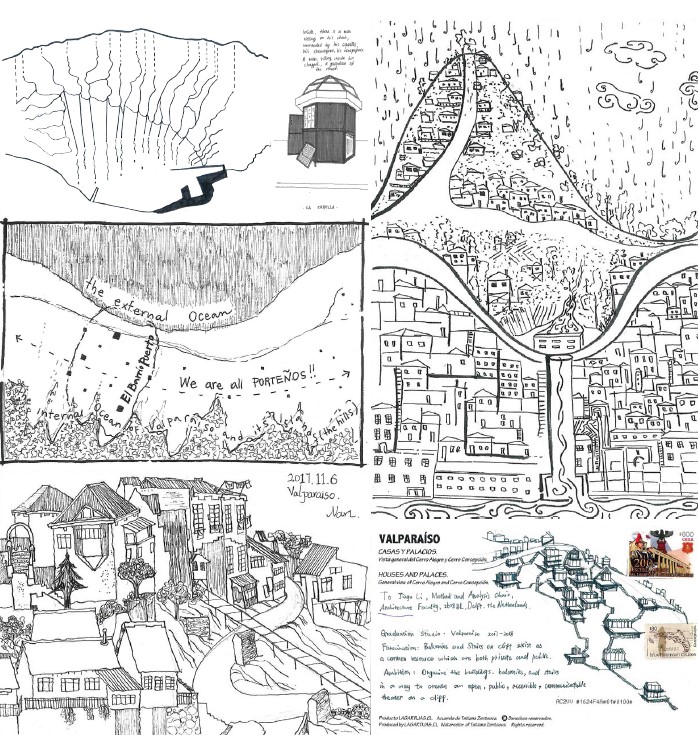Positions in Practice | Valparaíso (2017)
Constructing the Commons in the Latin American Metropolis
Students: Dev Asawla Nan Zhang Max Gelibter Michel de Beer Michelle Siemerink Bronya Meredith Evgenia Vlachaki Saba Schramko Jiayu LinZhi Zang Livia del Conte Yagiz Söylev Veronica Cristofoletti Koen de Veth
Title: Constructing the Commons in the Latin American Metropolis
Semester: 2017
Teachers: prof. dr. ir. Klaske Havik, prof. dr. ir. Tom Avermaete, Oscar Andrade Castro, Piero Medici, dr. ir. Willemijn Wilms Floet, Wenwen Sun
The MSc3/MSc4 Graduation Studio “Positions in Practice” of the Department of Architecture TU Delft (fall, 2017) focused on the urban and architectural context of Valparaíso, as a laboratory for the definition of disciplinary positions and the performance of these positions in practice.
The studio is part of the larger investigation “Constructing the Commons,” which takes as point of departure the idea that the city should be understood as the ultimate common socio-spatial resource: a collective cultural construct that is composed by and for its inhabitants. Around the notion of ‘the commons’, a challenging field of thinking has emerged in the fields of economy, political and social sciences, suggesting radically different ways to organize our societies. In her seminal publication Governing the Commons (1990), Nobel prize winner Elinor Ostrom put forward the idea of the commons as collective action that challenges standing perspectives on economy and policy. More recently, Silke Helfrich and David Bollier, in Die Welt der Commons (2015) have coined the commons as a model to think about the many domains of our everyday life beyond the dominant discourse of the market economy and state intervention. In these theories, however, there is little notion of the value of urban spaces as the main tangible forms in which the commons exist in society and organize social-spatial practices.
Contemporary logics of urban transformation and urban development allow us to understand the city as the realm where private initiatives and domains juxtapose. Squares, streets and galleries are increasingly becoming privatized and often sanitized by authorities. The possibilities of citizen participation in the development and experience of the urban common realm is decreasing, at the extent that there are little spaces in the city where citizens can cooperate to produce the city and its resources.
More information and documentation about this project can be found here.
